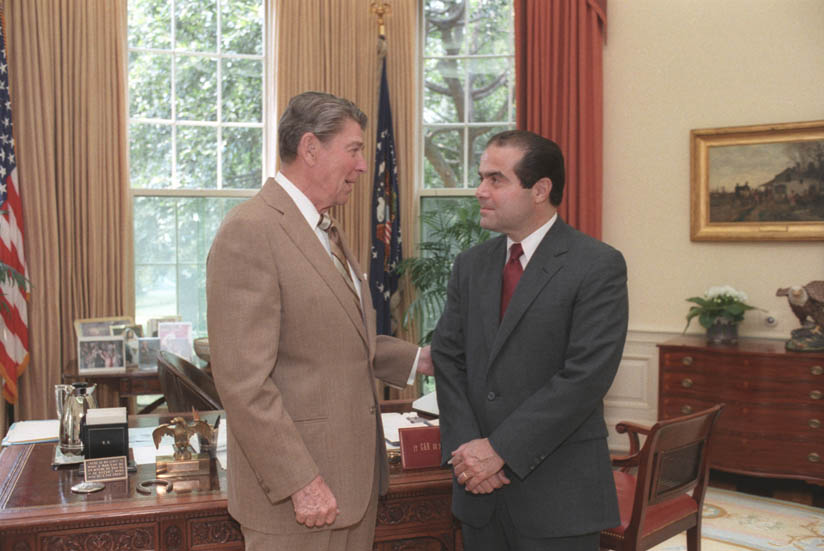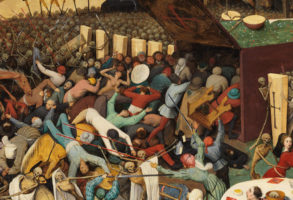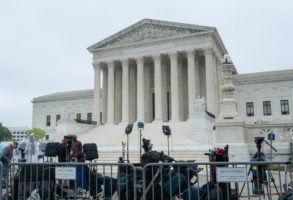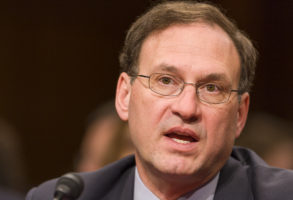
Published February 15, 2016
I knew Justice Scalia a little, and I’d like to share some stories. But first, a few words about his greatness. We live in a leveling era, a time when admiration for excellence is out of favor. Instead, we’re encouraged to resent and begrudge those who are superior. That’s a shame, because admiration has its pleasures. We ought to feel grateful to have lived in a time that produced an American figure of such genius and consequence.
The point has been made that in his 29-year career as an Associate Justice of the Supreme Court, Antonin Scalia more often wrote in dissent than in the majority.
It’s true that Scalia could not marshal large majorities for his careful, learned, and historically grounded view of constitutional (and, for that matter, legislative) interpretation. In the debate about the proper role of the judiciary in our democracy, Scalia was arrayed against the majority of lawyers, law professors, journalists, politicians, intellectuals, and often, at least five of his fellow justices. They had the numbers. All he had on his side was his mind and unique spirit.
It was no contest.
Scalia is an example of how important the individual can be in history. Though he was often outvoted, the mark he has left on American jurisprudence is profound.
The word “brilliant” is overused. In the case of Scalia, it may be too weak. Before he took his place on the Court, oral arguments were mostly dull affairs. Advocates spoke for long stretches, only occasionally interrupted by questions from the bench. When Scalia arrived, the room began to sparkle with incisive questions. It influenced his colleagues, who began to speak up as well, and woe to the lawyer who couldn’t keep his wits about him.
Much has already been written about Scalia’s judicial philosophy. He was a “textualist,” meaning he believed it was the judiciary’s role to interpret texts, not to try to divine intent, not to apply the words of laws literally in every case, and certainly not to insert the judge’s personal preferences under the guise of discovering new “fundamental rights.” If judges do not hew to the written text, if, for example, the Constitution is a “living” thing that changes with time, why have a Constitution at all? The Constitution itself sets out the way to change it – through the amendment process. But for decades, progressives have been amending the Constitution on the cheap (illegitimately) by creating rights out of whole cloth, such as, most recently, the right to same sex marriage. As Scalia wrote in his Obergefell dissent: “A system of government that makes the People subordinate to a committee of nine unelected lawyers does not deserve to be called a democracy.”
Scalia made the case for textualism again and again throughout his years on the bench – and no one wrote with more pungency, bite, and clarity. As someone who attended law school before Scalia joined the Court and thus had to wade through hundreds of achingly dull and sometimes incoherent judicial opinions, I would have rejoiced to read Scalia (and have done as a non-student). He seemed incapable of writing a non-memorable sentence. I remember his concurrence in National Endowment for the Arts v. Finley, a case in which some argued that the intent of the Congress in passing the law funding the National Endowment ought to be taken into account.
He opened with this: “’The operation was a success, but the patient died.’ What such a procedure is to medicine, the Court’s opinion in this case is to law.” He continued, “. . . .[A]ll this legislative history has no valid claim upon our attention at all. It is a virtual certainty that very few of the Members of Congress who voted for this language both (1) knew of, and (2) agreed with, the various statements that the Court has culled from the Report of the Independent Commission and the floor debate (probably conducted on an almost empty floor). And it is wholly irrelevant that the statute was a “bipartisan proposal introduced as a counterweight” to an alternative proposal that would directly restrict funding on the basis of viewpoint. . . . It matters not whether this enactment was the product of the most partisan alignment in history or whether, upon its passage, the Members all linked arms and sang, ‘The more we get together, the happier we’ll be.’”
I’ve met lively people, hilarious people, who are leaden on the printed page. Scalia was able to take the tremendous verve and brio of his personality and translate it perfectly to prose. He had a larger purpose too. He wasn’t just showing off his quite spectacular writing talents – he had an eye on the future. Generations of law students, when assigned Supreme Court cases, will turn to Scalia’s dissents first, just for the sheer rapier wit. But once drawn in for entertainment, they may stay for the argument. (That’s what happened to me as a teenager. I started reading William F. Buckley for the fireworks, but stayed for the substance.)
I knew Scalia a little. We first met back in the early 1990s, when I was seated next to him at a dinner. At the time, Justice Clarence Thomas had been on the court for a year or two, frequently, though hardly always, concurring with Scalia, and the line among the “chattering class” (a little racist, actually), was that Thomas was just a Scalia marionette. Justice Scalia was irritated. “He’s nobody’s puppet,” he told me. “He is very much his own man. I haven’t influenced him. If anything, it’s the other way around. I changed my mind after reading his draft!”
On another occasion, we were both guests on a television program. The question was asked: “What do you think of when someone says ‘America?’” I went first and said, rather pompously, “Ordered liberty.” The host nodded to Scalia, who said simply, “My home.”
I next ran into him at an airport, where we shared a few minutes’ conversation before heading in different directions. He laughed heartily at my jokes. One of the wittiest men in America laughing with me? Now that is a gentleman!
In recent years, it’s been my pleasure to see him and his wonderful wife Maureen at quarterly dinners hosted by a mutual friend. His personal warmth and delight with life shone through on every occasion. Despite his enormous stature, his manner was always approachable and down to Earth. That said, he lit up any room he was in.
Antonin Scalia lived his life in the service of God, his family, and his country. As we say in the Jewish tradition, “May his memory be for a blessing” – a blessing for the widow, children, and grandchildren he leaves behind, and for the country he loved and served so well.
Mona Charen is a senior fellow at the Ethics and Public Policy Center.








